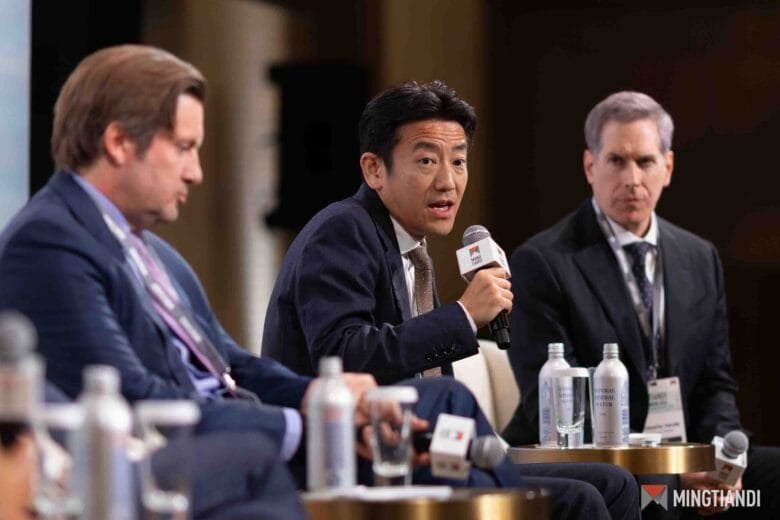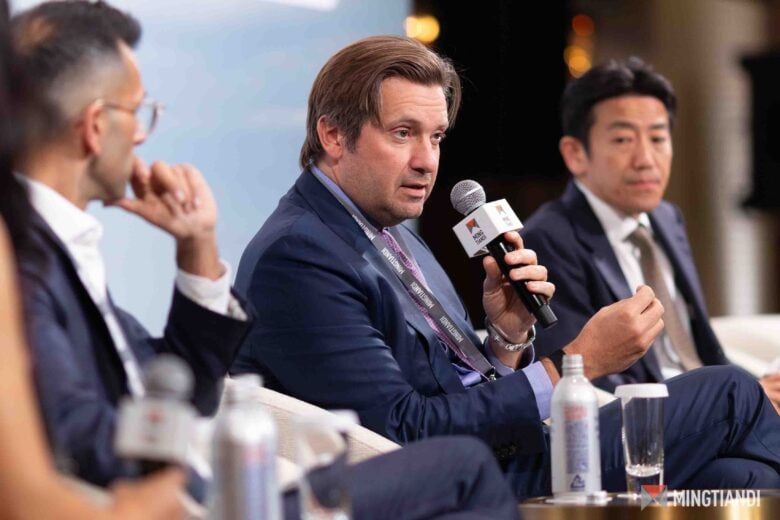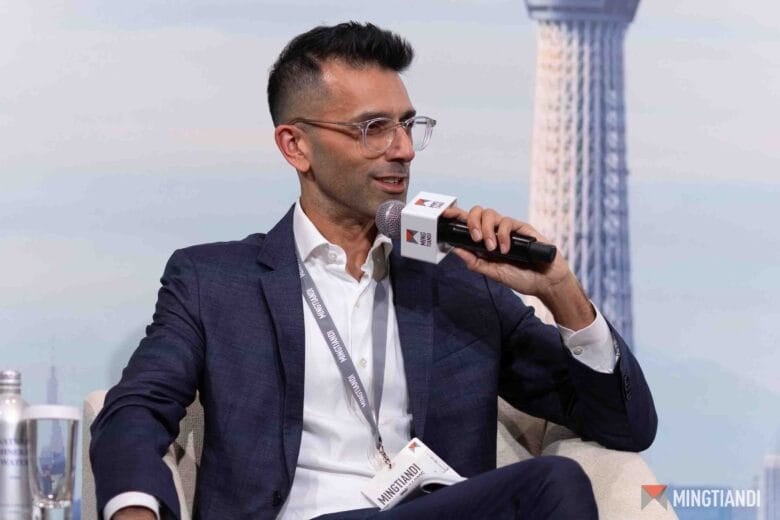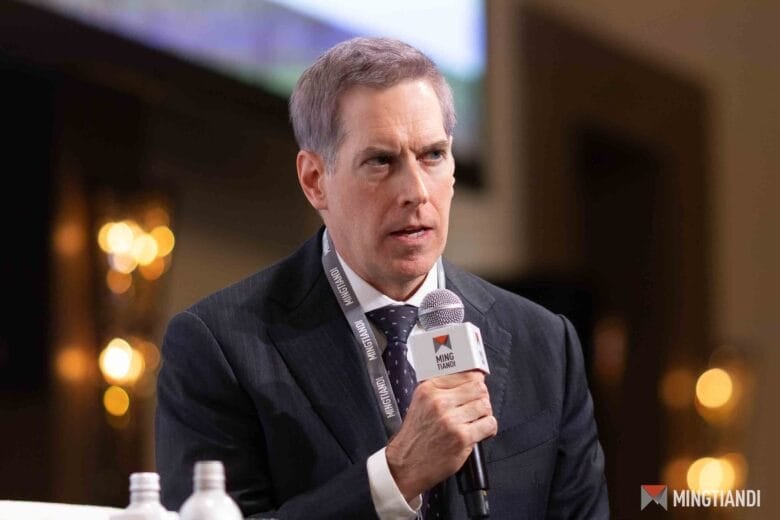Amid stagnant US office markets and geopolitical turbulence, Japanese investors are resetting their geographic targets in favour of Europe and Australia, according to industry experts speaking at the Mingtiandi Tokyo Forum this week.
While the US currently accounts for between 50 to 60 percent of overseas real estate holdings for the Development Bank of Japan, the institution sees allocation to the market dropping by 10 to 15 percent in the coming years, according to a representative of the government financial institution. The DBJ now sees Europe as its top overseas destination as it seeks to counterbalance a heavy domestic weighting to its portfolio.
“Eighty percent of our investment is allocated to Japan, so it’s not an option to increase the Japanese portfolio,” said Hayato Tsuji, general manager of the real estate finance department at the DBJ. “Then the natural answer will be the European market.”
The change in direction for the DBJ reflects a broader realignment of geographic priorities for Japanese institutional investors, even as more players from Asia’s second largest economy pursue opportunities in overseas markets as a way to diversify their holdings, according to the panelists.
Targetting Higher Returns
Appearing at the event sponsored by Yardi, the DBJ’s Tsuji said that, with rising interest rates and inflation at home, Japanese institutional investors are now expecting higher yields, with the DBJ now targeting close to 10 percent returns for new real estate investments.


Hayato Tsuji, general manager of the real estate finance department at Development Bank of Japan
With the bank boosting its European commitments, it is looking beyond the mainstream of capital flows into the UK to pursue opportunities in continental Europe.
“As for the European market, continental Europe is the single best option for us, because price corrections have already happened and interest rate cuts have already happened,” Tsuji said. “So that is a very viable market from that perspective.”
That shift in priorities is natural, according to Christopher Garbe, managing partner of Hamburg-based real estate developer and investor Garbe, who pointed to European logistics as offering a “safe haven” for institutional capital from Japan, while offering more appealing borrowing costs and greater political stability than the UK.
“The UK is obviously, for most of the overseas investors, the first point of entry. It’s a transparent market. There are no language barriers and so on. But on the other hand, if you look into mainland Europe, like Germany, France, Italy, the Netherlands, and Spain, the investment environment [in those countries] is actually quite attractive,” said Garbe.
Prices in continental Europe have remained stable for about 18 months after a major correction, with analysts now indicating that the market has bottomed out and may be in line for an upswing, he noted. Increased spending on infrastructure and defense are providing fresh tailwinds for the Continent’s logistics and industrial markets, he added.


Christopher Garbe at the Mingtiandi Tokyo Forum
Ongoing urbanisation in major European hubs is also boosting the outlook for industrial property investment, with asset owners seeing prospects for assets to grow in value as cities swell, he added.
“If you pick the right location, cities are expanding, then they are converted from industrial sites to commercial sites – even office and residential. So you always have the higher use opportunity if you have got the patience,” said Garbe.
Garbe’s European logistics portfolio currently delivers an average yield of between 5 to 5.5 percent, while yields in key markets including Germany, the UK and France come in at 4.5 percent or less, according to Garbe.
Aussie BTR in Focus
Australia ranks as the DBJ’s next highest priority after Europe, Tsuji said, pointing to the country’s steady population growth and transparent markets.


Sam Bisla of Kio at the Mingtiandi Tokyo Forum
Sam Bisla, founder and managing director of Warburg Pincus-backed living sector platform Kio Investment Management, pointed to opportunities for investors from Japan, and globally, to benefit from filling a growing housing gap in the country.
“Australia has the fastest growing population in the OECD (Organization for Economic Co-operation and Development) at 2.9 percent. And to put that in context, number five is Mexico at 1 percent. Japan is the 38th at -0.5 percent,” said Bisla, who led the Australian residential business of US developer and fund manager Hines, before setting up the Brisbane-based firm.
With Australia’s population continuing to grow, the country faces a “structural deficiency” with new housing supply now down about 40 percent from its long-term historical average, “And that gap is widening,” Bisla noted.
With Kio’s projects now delivering net yields of around 6 to 7 percent and achieving IRRs of just over 14 percent on development projects, Bisla sees Japanese investors gaining further advantages from the contrasting monetary policies between the two countries.
“As we’ve sort of pointed out already, the interest rate differential between Australia and Japan is probably one of the only places in the world where there’s a FX gain on the way back. So it’s a very, very strong market,” he added.
Selecting Office Opportunities
While US office projects traditionally captured the bulk of outbound real estate investment from Japan, New York now stands as the only US city with an interesting office market for Japanese investors, the DBJ’s Tsuji said.


Christopher Handte of Tokyo Trust Capital at the Mingtiandi Tokyo Forum
“In the other parts of the US, the return-to-office ratio is around 50 to 60 percent,” said Tsuji.
With his company currently managing office assets in New York, San Francisco and Washington DC, Christopher Handte, chief executive of Tokyo Trust Capital, also sees New York office opportunities as some of the most appealing in the US, pointing to a recovery in demand as financial giants bring their teams back to the workplace.
“I would say that New York is picking up, we are seeing strong, domestic interest in New York. I do believe in that recovery,” he noted. “But as far as other US markets for office, I am cautious as well. But there’s still plenty of opportunity in other areas for multi-family and logistics.”
In addition to its US projects, the Tokyo-based affiliate of Singapore’s TE Capital sources opportunities globally for Japanese investors and last month closed on an acquisition of an Amsterdam office property for a Japanese investor with European operations.
Handte reassured the audience that there are market opportunities in the cities where it operates, which include New York, Los Angeles, Amsterdam and London provide attractive enough yields to meet the requirements of Japanese investors.
A Panel in Pictures

AloJapan.com